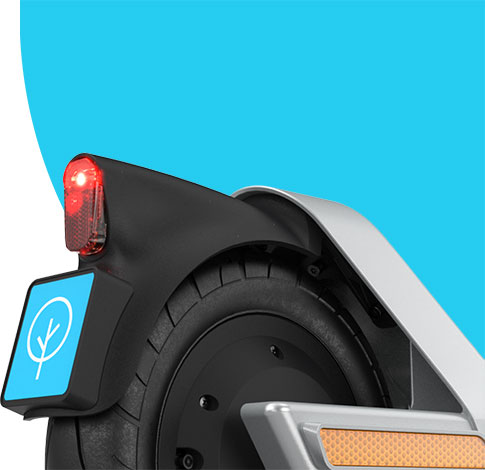Cities around the UK are about to undergo an important change in personal urban mobility equipped with one very distinct advantage: three years of hindsight.
As electric scooter programs launch throughout the summer in Britain, many of the same trends that we’ve seen in hundreds of other cities around the world are likely to happen here. There will be excitement. There will be debate. And undoubtedly, as with all new technologies, there will be a learning curve as riders adapt to this new, sustainable and socially-distant form of transportation.
With the right proactive preparation, however, the UK can quickly become a global leader in one particular area that has seen dramatic improvement since 2017: scooter parking.
As the pioneers of the shared e-scooter industry, Bird has been leading the way on parking technologies and best practices since the beginning. Along the way, our team has gained critical insights into what solutions work well and how best to deploy them.
The following are three measures that cities across the UK can begin putting in place now to help ensure that electric scooter parking is well organized starting on Day One.
1.) Install Dedicated Parking Nests
Creating dedicated scooter parking zones, or nests, is a simple but effective way to instill good habits in new riders. The beachside city of Santa Monica, California began implementing this practice in 2018 with very positive results. In fact, Santa Monica was one of five US cities studied by researchers at Cornell University in 2020 who found that only 2% of scooters were improperly parked—far less than the 24.7% of motor vehicles in those same cities that were observed to be parking noncompliant.
Cities like Paris and Lisbon have taken this a step further, reclaiming street space from cars in order to install dedicated scooter parking nests. A Bird study conducted in Paris in August of 2019 found that these zones had a significant impact on rider behavior. We saw a 16% increase in parking compliance from Bird riders who started their ride from a dedicated parking zone.
In other words, good behavior begets good behavior.

2.) Educate Riders
Parking compliance education should start from the very first ride and be reinforced with every subsequent ride thereafter. To that end, it’s important for local authorities to partner with micromobility operators who have both the experience and the technology to ensure that it happens.
Bird walks every new rider through an in-app tutorial designed not only to get them acquainted with how the vehicles function, but to inform them on parking and riding regulations unique to their city. We also provide the locations of approved parking zones directly in the Bird map, making it easy for riders to identify “nests” near their destination even before starting their trip.
The more frequently we teach riders where to park, the better their resulting compliance.

3.) Give the Community a Voice
Scooter parking doesn’t just affect riders; it has an impact on the entire community. That’s why it’s imperative that local authorities in the UK give the public a voice in keeping their pavements and footpaths clear. One simple way to do this is by partnering with operators that have a community reporting feature built right into their app.
Bird is one such operator. Our “Community Mode” was launched early in 2019 and plays an important role in our day-to-day vehicle operations. Any member of the community can identify a damaged or poorly parked Bird scooter in a matter of seconds simply by opening the Bird app and tapping an easily-identifiable button on the opening screen. The feature has not only helped us to increase our response times by more than 4x, but it’s also helped to expand our ongoing dialog with the communities we serve.
The more we make community voices heard, the better micromobility systems work for everyone.

Rebecca Hahn is the Chief Corporate Social Responsibility Officer at Bird.
Her role puts her at the confluence of community engagement and storytelling, leading the company’s global city engagement, government partnerships, policy, communications, marketing and brand teams.

